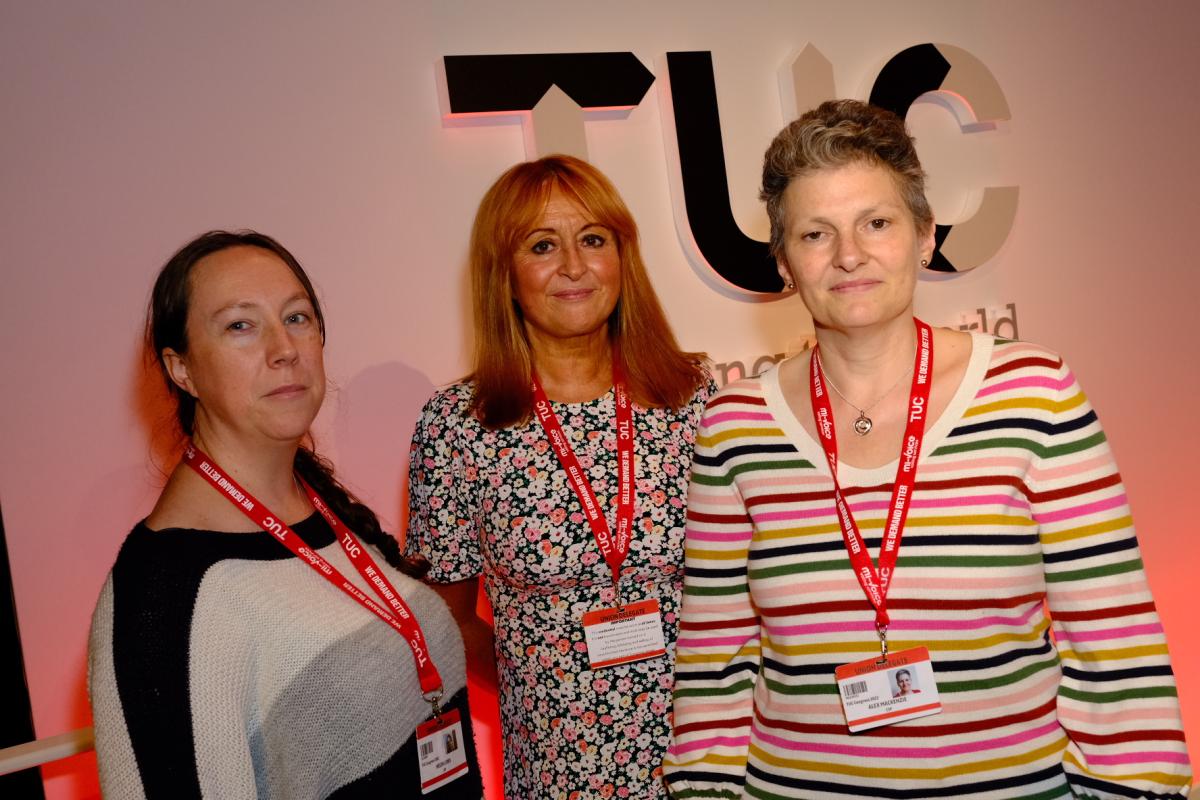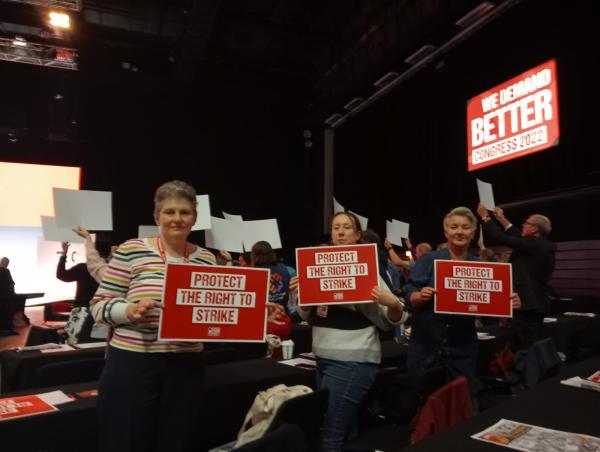Our members spent the second and third days at Congress creating new trade union policies – which will now push employers in the NHS and wider economy to make better arrangements around flexible working and reasonable adjustments.

Flexible working
Physiotherapist Helen Lewes – speaking for the second time at the trade union movement’s annual policy making conference– spoke from personal experience of the value of flexible working in the NHS.
Facilitated by an accommodating line manager – themselves a CSP workplace rep – Helen has used contractual flexibility to “manage the three jobs closest to my heart – being a mum, a physiotherapist, and a union rep.”
However, Helen went on to outline that despite high level NHS policy agreements, flexible working is still far from the norm in the NHS.
This pushes many workers – and particularly women, who across society perform a disproportionate amount of unpaid domestic labour – out of public sector employment. A lack of flexibility at work limits women workers from taking on representative roles in our trade union movement; and prevents them from accessing health care themselves.
Congress agreed with Helen that flexible working 'has the potential to better meet patient and service delivery needs, continuing the working of reducing waiting lists and ensuring the right person is in the right place at the right time'.
The TUC will now continue to campaign to make flexible working the default and central to the ability of employers to recruit and retain staff.
Reasonable adjustments passports
Our delegation continued with Alex MacKenzie – in her last TUC Congress as chair of CSP Council – moving a motion calling for reasonable adjustment passports to be made mandatory across public bodies.
Alex laid out to Congress how physiotherapists are an essentially mobile workforce – with rotations across acute, community and mental health services, GP practices, and schools the norm for the profession.
For those members made disabled by barriers created within society, this causes exhaustion when workers must battle with each and every new employer to win the legal protections laid out in the Equality Act – and in particular arrange reasonable adjustments for their workplace.
With workers across the economy facing similar frustrations, multiple unions have over several years developed accessibility passports that allow these accommodations to move with the worker – allowing for a stress-free transition between roles, with adjustments put in place from day one of new contracts.
Alex argued that mandating the recognition across public sector bodies would 'be simpler for the employee and simpler for the employer'.
Congress agreed, and the TUC will now lobby for the recognition and use of accessibility passports in all public bodies.
New anti-worker legislation

Our delegates closed out Congress by supported an emergency motion on the threat of new anti-union legislation announced by the UK government. Congress agreed that these proposals threaten all workers and the union movement together committed fight the legislation, considering all means necessary.
Find out more
- CSP support for the TUC Anti-Racism Manifesto, launched at Congress
- Our delegates highlight NHS rehab and staffing challenges on day one of Congress
- Read the motions the CSP’s delegation moved and seconded at Congress 22.
- Interested in joining in with the trade union movement’s democratic policy making? Speak to national officer Siân Caulfield for an informal chat about joining at a future Congress or equality conference.
Number of subscribers: 2